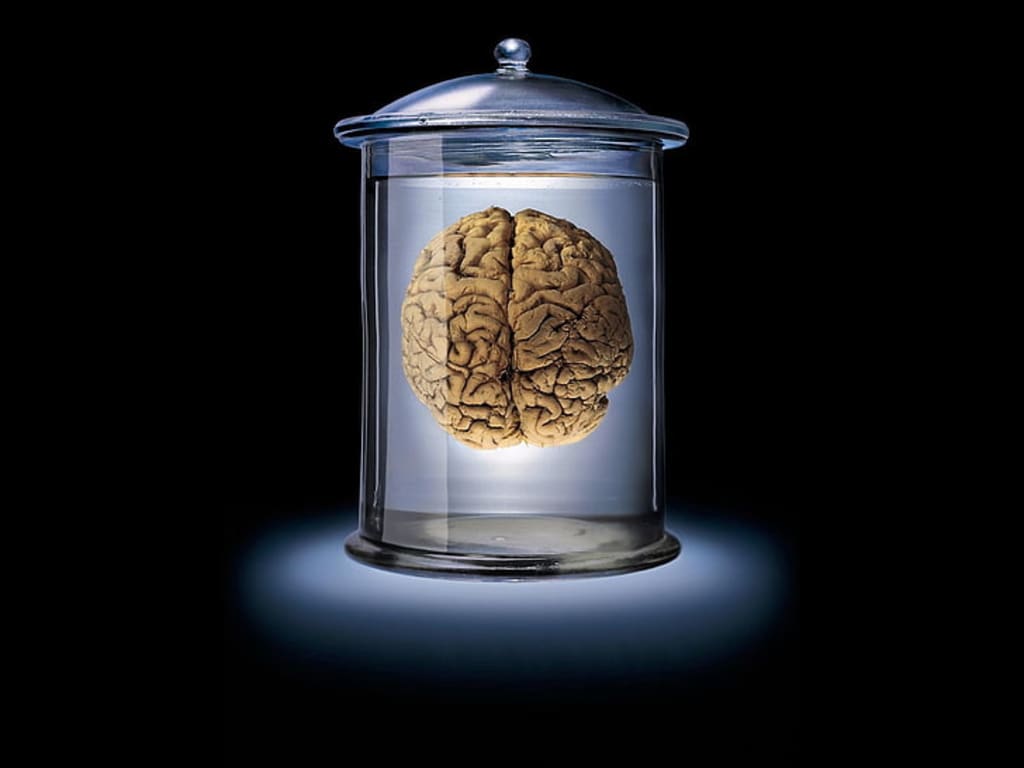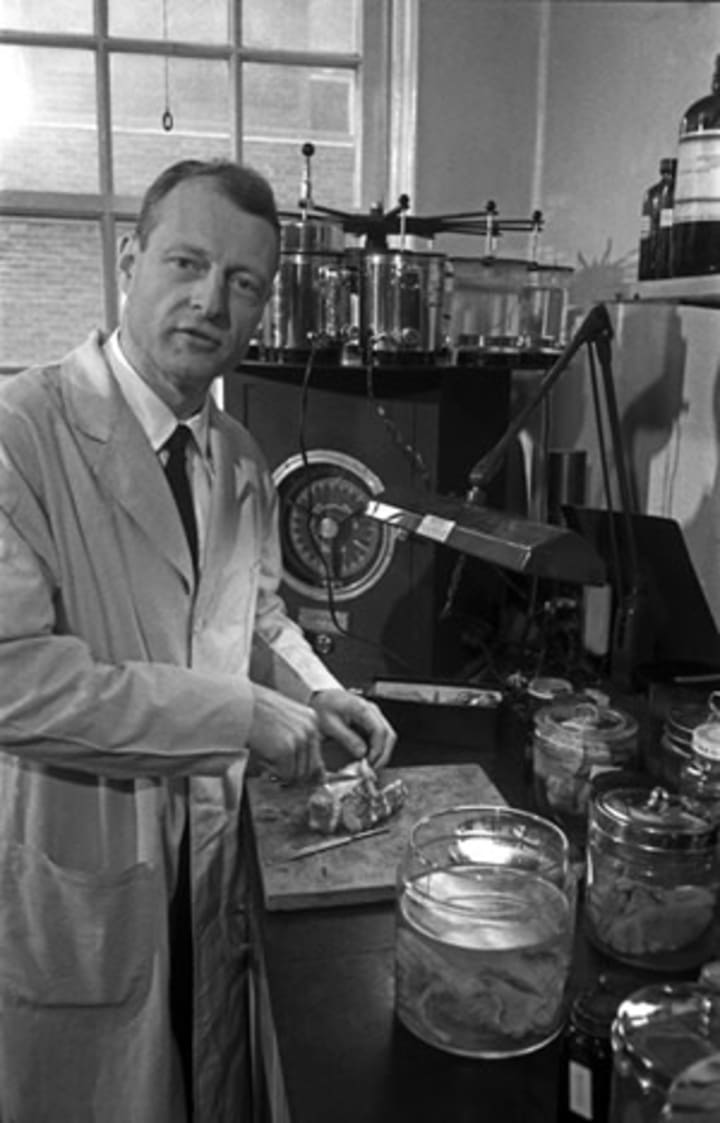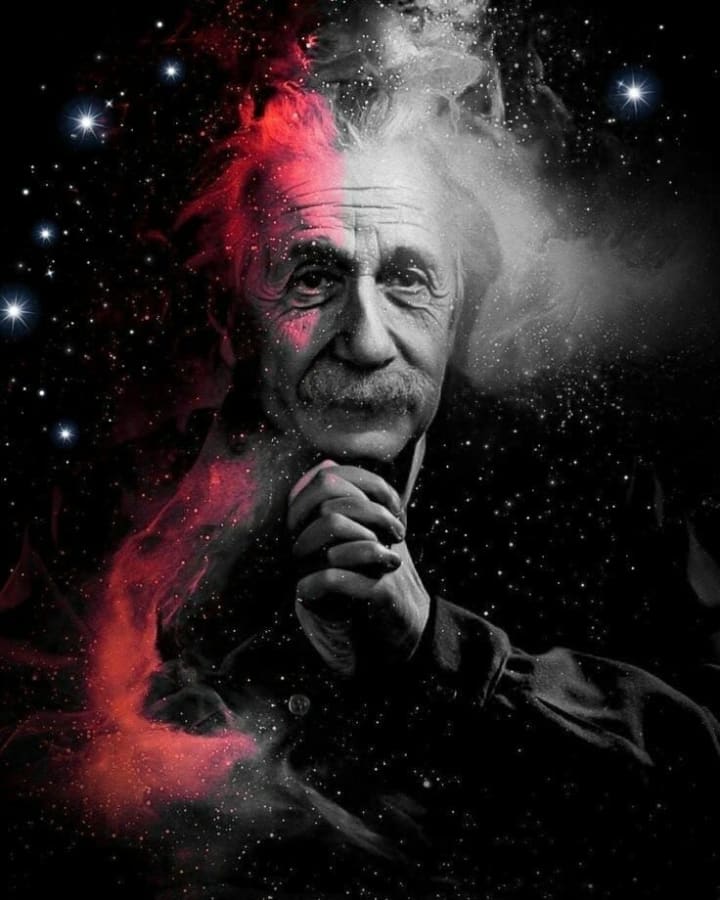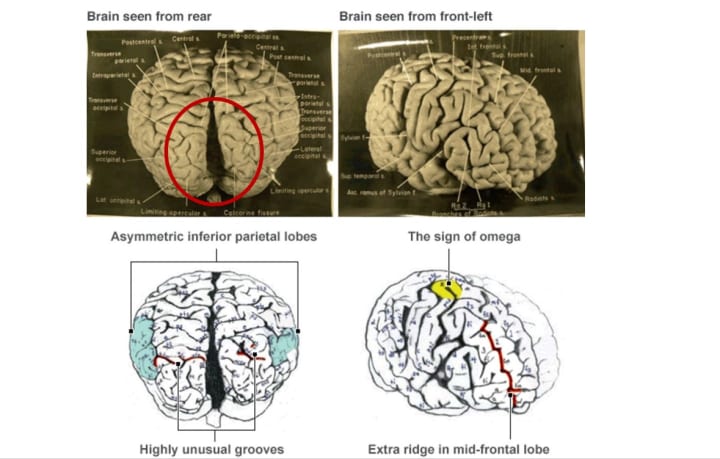The strange afterlife of Albert Einstein's brain
Einstein's death 60 years ago was just the start of a strange journey of his brain. His brain was so special that someone reportedly stole it for 23 years!

Thomas Harvey is a doctor at the hospital where Einstein died took possession of Einstein's Brain. Harvey wanted to know the specialty of Einstein's brain and what made him a genius.

Harvey was not allowed to study Einstein's Brain. Nor did he have a legal right to remove and keep the brain for himself. While all this was happening, Einstein's dignity was compromised as Einstein gave some instruction about his remains.
Einstein left behind some instruction regarding his body: cremate them, and scatter the ashes secretly in order to discourage idolaters.
Yet not only did Harvey took possession of the brain, but he also removed the eyeballs and gave them to Henry Abrams, Einstein's eye doctor.
Harvey was then dismissed from Princeton Hospital. Harvey was not a neurologist, but he promised to marshal the country's greatest specialists to study the brain, and to publish their findings soon.

After losing his job, Harvey took the brain to a Philadelphia hospital. The surgeons of Philadelphia hospital then dismembered Einstein's brain into 240 cubical pieces.
Harvey gave some pieces to Harry Zimmerman, Einstein's personal physician. Harvey with some researchers was studying the brain pieces.
During the first thirty years of this strange odyssey, the study of Einstein's brain went nowhere. To his credit, Thomas Harvey stuck to his promise. At any time, he would publish his studies publicly.
Other neuroscientists joined the study and begin experimenting on Einstein's brain. They did reveal some interesting qualities about Einstein's brain. They found that, In Einstein’s brain, the number of Glial cells was more than average!

Glial cells acts like a glue - fix neurons into place and keep them supplied with oxygen and nutrients over time.
Even though Einstein’s IQ was way higher than most, the size of his brain was actually smaller than the average male's. More significantly though, Einstein’s inferior parietal region was about 15 % larger than average. It’s thought to be the part of the brain that helps with language and mathematics.
Another anatomical difference is that he was lacking a crevice in the skull area in the brain called the Sylvian fissure. Also, his brain did not show any significant signs of aging. It was like, Einstein was just aging physically not mentally.

This is the reason, Einstein was able to solve the secrets of cosmos and mathematics even at his old age.
Einstein's brain was lacking a substance called lipofuscin, which is an autofluorescent brown-yellow pigment. What we do know is that it accumulates in the human body with the age of 76 years . Einstein’s brain was almost completely void of it.
But none of these facts could be considered a huge breakthrough in understanding Einstein’s intelligence.
In 1996, Britt Anderson at the University of Alabama at Birmingham published a study on Einstein's prefrontal cortex. He found that neurons in Einstein’s brain were more tightly packed, perhaps for faster processing of information.

As you can see, there is a huge gap between the two sides of the brain. Also, the inferior parietal lobes as you can see in the above photo, it's unequal on both sides. One is big, while the other is small. As you can see in the photo, “The Sign of omega”, - it's usually in the musicians who use their left hand and Einstein used to play the violin.
Maybe, this all-Einstein Brain’s features are secret to his intelligence and memory power. This may be the reason, why he was able to prove his theories and think beyond the box than any other person.
There’s no doubt that what Harvey did wasn’t exactly ethical and probably not in the name of science but hopefully, with modern technology and our developing knowledge of the human brain, secrets about Einstein’s brain may finally be revealed and its long journey.






Comments
There are no comments for this story
Be the first to respond and start the conversation.